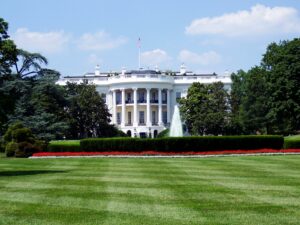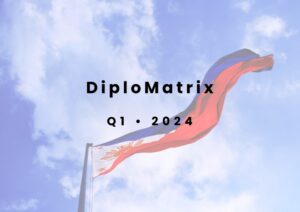Pimtawan Nidhi-u-tai* and Lalin Kovudhikulrungsri**
Introduction
In October 2020, the National Space Policy Committee (NSPC) finally approved the Draft National Space Act, as prepared by the Geo-Informatics and Space Technology Development Agency (GISTDA). The Draft National Space Act is now pending consideration of the Prime Ministerial Cabinet, along with further amendments and parliamentary approval.[1] The main objectives to be achieved by the Draft National Space Act consisted of creating a legal regime and establishing a governmental agency dedicated to developing space policies in coordination with Thailand’s move towards the New Space Economy.[2] This major legislative development will not only mark Thailand’s preparation to comply with the international standards of outer space-related conducts but also represents willingness for the private sector’s participation in space businesses and technology. Having said that, the Draft National Space Act does not extensively or comprehensively provide regulations for all aspects relating to outer space activities and sets out to rely on secondary legislations or other legal instruments to fill in the gaps as Thailand garners further experience in the space industry.
In the past, Thailand chose other options to regulate the space industry. In the case of Thaicom telecommunication satellites, a concession agreement was awarded. Under other conditions, satellites were launched and operated by governmental sectors. Among many of the issues dealt with by the recent Draft National Space Act, the development of a central registration system and licensing regime plays a central role in the progression of Thai space laws. This article aims to discuss the recent legal development in the Draft National Space Act on the creation of a registration system and the mitigation of space debris which is being incorporated through the licensing framework. The latter issue is particularly notable since Thailand’s National Space Strategy 2017-2036 has omitted the issue, perhaps suggesting the exclusion of space debris mitigation from Thailand’s long-term plan.
The International Registration System under the United Nations
The Online Index of Objects Launched into Outer Space, maintained by UNOOSA, currently lists over 700 unregistered space objects. More than half of these unregistered space objects remain in orbit.[3]
In 1961, the United Nations General Assembly (UNGA) adopted Resolution 1721 (XVI) which called upon the creation of a public registry of objects launched into space. This was done in order to supplement the works of the Committee on the Peaceful Uses of Outer Space (COPUOS) in light of discussions over the legal issues associated with outer space exploration. Accordingly, the UNGA formed the foundation of the international cooperation between governmental and non-governmental agencies to exchange information related to outer space activities on a voluntary basis. The UNCOPUOS and the Legal Subcommittee subsequently engaged in several discussions to further advance international cooperation, thereby establishing a number of treaties including the Treaty on Principles Governing the Activities of States in the Exploration and Use of Outer Space, including the Moon and Other Celestial Bodies,[4] the Agreement on the Rescue of Astronauts, the Return of Astronauts and the Return of Objects Launched into Outer Space,[5] and the Convention on International Liability for Damage Caused by Space Objects.[6]
A commonality shared amongst these treaties is the State Party’s obligation to share data and information on their space activities, contributing to the increasing importance of space object registration. The COPUOS and its Legal Subcommittee subsequently drafted the Convention on Registration of Objects Launched into Outer Space to address this issue and to formally consolidate the obligation to register space objects for the purpose of identification of outer space objects that bear significant relevance with regard to the issue of jurisdiction and liability of space objects. However, Thailand is a non-Party to the Convention and, although it registered a space object once in 2008, as the basis of such registration remains voluntary, Thailand has not registered any space objects launched since then.
This issue was recognised as one of the major reasons cited in the support for the development of a space law since the earlier proposals to develop a national space law in the context of telecommunications services.[7] Although the registration regime as outlined by the Draft National Space Act has not entered into force, Thailand remains aware of the importance of a centralised registration system. Accordingly, it was approved by the cabinet that GISTDA would be tasked with initiating the notification process, as opposed to being the registrar, and coordinating with the Ministry of Foreign Affairs, whose responsibility will be to register space objects with the United Nations (UN).[8]
Licensing and Space debris
It goes without saying that on the issue of space debris, there are two aspects to be considered: one for the creator of space debris and the other facing the consequences of the fallen space debris. Thailand has been on both sides of the coin and space debris is not an issue to be disregarded especially with respect to liability issues. Since Thailand is only a State Party to the Outer Space Treaty, Thailand risks of “[bearing] international responsibility for national activities in outer space.”[9]Furthermore, Article VII stipulates that the launching State Party bears international liability for any damage caused by their space object or its components.[10] The provisions contained in the Outer Space Treaty, however, paint a broad picture about the State Party’s responsibility and possible liability for national space activities. Thus, the main treaty body which addresses liability issues is the Liability Convention to which Thailand is not yet a State Party but conveys the foundation principle enshrined in Article VII of the Outer Space Treaty. It is, therefore, necessary for Thailand, in the Draft National Space Act, to clarify and elaborate the regulation concerning space debris and how liability can be attributed in the case of damage arising from space debris.
In a compendium on the Space Debris Mitigation Standards Adopted by States and International Organisation compiled by UNOOSA in 2019, it was recognised that Thailand does not have a national legal framework to implement the Inter‐Agency Space Debris Coordination Committee’s (IADC) Space Debris Mitigation Guidelines. It has nonetheless voluntarily practiced some of the guidelines, namely the post-mission disposal and the prevention of on-orbit collision, in the operation of THAICHOTE satellite (THEOS-33396) according to Thailand’s last update in the year 2016,[11] and the deorbiting of THAICOM satellites.[12] In the absence of other specific national legislation, the potential applicable law may be ones pertaining to environmental protection though this is yet to be observed. Moreover, in 2019, the Secretariat from Thailand submitted a summary of the mitigation activities conducted in 2018 to the Scientific and Technical Subcommittee of COPUOS. The submission made apparent that notwithstanding a binding legal basis, Thailand has taken into consideration space debris concerns and is actively engaging in the area, noting Thailand’s cooperation with the United States Strategic Command’s Joint Space Operations Center (JSpOC) and Space Data Association (SDA) in its attempt to take space debris mitigation measures, which include the application of the Development of Satellite Orbit Analysis and Determination Processing System (EMERALD) and a space surveillance awareness system.[13] While these developments are more closely related to the measures involved with space situational awareness, the importance of their continuations are indicated by further considerations to enhance the Space Situational Awareness (SSA) and Space Traffic Management (STM) as they serve an overlapping function in contributing to the mitigation of space debris.[14]
With that said, Thailand’s preparation to coordinate its space policies with international practice has been reflected by the Draft’s inclusion of environmental concerns, specifically with regard to the mitigation of space debris. The Draft imposes an obligation for space activities license holders to implement space debris mitigation measures and avoid the production of space debris as a precondition to obtaining the license. The authors have observed that this approach has been similarly adopted by a number of states that concerted IADC’s Space Debris Mitigation Guidelines into space debris mitigation or licensing requirements. The approach is exemplified by the United Kingdom’s Outer Space Act 1986 (OSA), the legal basis for the government’s oversight of space activities. According to the Act, licenses will not be granted unless the issuing authority is satisfied with the activity’s measures in ensuring public health safety and adequate environmental protection.[15] Under this legal requirement, the applicant is required to assess their space activities in relation to public and property safety, the risks involved in their activities at each stage of the mission and how these risks can be averted.[16] The essence of such an approach is converting space mitigation “guidelines” into “requirements” upon licensing which, in principle, ensures a degree of compliance or at the very least, ensures that concrete efforts are made by license applicants to adhere to the standards. Canada has similarly adopted this approach under its national legal framework, the Canadian Remote Sensing Space Systems Actand implemented by the Canadian Remote Sensing Space Systems Regulations, which enshrines the obligation to produce a “system disposal plan” pursuant to the requirements in compliance with the IADC’s Space Debris Mitigation Guidelines prior to the issuance of licenses.[17]
Although Thailand’s Draft National Space Act suggests imposing space debris mitigation plan as part of the licensing requirement, the Draft leaves a substantial gap to allow flexibility for further regulatory development in subsidiary legal instruments which should be taken as an opportunity to advance the regulatory requirements on the aspect of environmental protection and space debris mitigation. This is particularly important in light of Thailand’s aim to also commercialise space activities that may not only increase the space traffic but risks of collisions, too. Additionally, the Draft National Space Act has not made distinctions between different types of outer space activities yet. Any future categorisation of such activities could have implications on whether licenses would be required and, consequently, whether space debris mitigation requirements would be applicable and obliged by the license applicants. It is to be considered whether Thailand would be implementing the IADC’s Guidelines as secondary legislation to reinforce environmental protection considerations.
Concluding Observations
Although the Draft National Space Act is not fully comprehensive, in part due to Thailand’s inexperience in space regulation, its advancement in international space-related cooperation has moved at a steady pace. A significant indicator of Thailand’s progress is the Draft National Space Act, which provides the overarching aims for Thailand’s space policies all the whilst still relying on future legal initiatives. On the one hand, the Draft is Thailand’s early attempt at regulating the space industry and thus the ambiguity in the laws can be understood as part of a natural progression of things that always begins with practice, though, becomes fostered and reinforced by the legal changes over time. This, however, is not entirely a disadvantage as it also provides a leeway to adapt and change the rules as future circumstances require. On the other hand, it may give rise to a challenging start as the details on a number of issues are yet to be finalised or issued by other means, like secondary legislation. In having discussed Thailand’s recent development in the Draft National Space Act, it can be seen that a national registration system, as internationally required pursuant to the Registration Convention, is materialising. The additional attempt to regulate the space industry by way of licensing as other nations have done will not only enable private sector participation but will also introduce a framework in which space debris mitigation measures can be implemented. Despite its absence from Thailand’s long-term National Space Strategy, it may be comforting to acknowledge that Thailand has not overlooked the importance of environmental considerations in times of the application of the New Space Economy. These legal developments, though awaiting improvements, should be taken as Thailand’s attempt and initiation to observe future international obligations.
* Pimtawan Nidhi-u-tai holds an LL.B. in International and European Law from the University of Groningen and is pursuing an LL.M. in Business Laws at Thammasat University.
** Lalin Kovudhikulrungsri is an Assistant Professor at the Faculty of Law, Thammasat University. She holds a Ph.D. in Air and Space Law from Leiden University.
[1] The Draft is merely a stepping stone towards national space legislation as it is awaiting to be considered by the Prime Ministerial Cabinet, the Office of the Council of State and obtain the Parliament’s approval. It remains uncertain as to when the Draft will enter into force. For Thailand’s legislative process, see ‘Thai Legislative Process’ (Office of the Council of State) < https://www.krisdika.go.th/web/office-of-the-council-of-state/thai-legislative-process#:~:text=According%20to%20Thai%20constitutional%20convention,by%20the%20Council%20of%20Ministers.> accessed 15 January 2020. ‘National Space Policy Committee Meeting led by Deputy Prime Minister Prajin Juntong [รอง นรม. พล.อ.อ.ประจินฯ เป็นประธานการประชุมคณะกรรมการนโยบายอวกาศแห่งชาติ ครั้งที่ 4/2561]’ (Secretariat of the Prime Minister, 2 October 2020) <https://spm.thaigov.go.th/crtprs/spm-sp-layout6.asp?i=21111%2E31122702112113121111311> accessed 12 January 2021; Pakphoom Laotrakool, ‘GISTDA Moving Forward with National Space Act’ [ภาคภูมิเหล่าตระกูล, ‘GISTDA เดินหน้า พ.ร.บ. กิจการอวกาศไทย’] (GISTDA, 2 October 2020) <https://www.gistda.or.th/main/th/node/4155> accessed 12 January 2021.
[2] Laotrakool (n 1).
[3] Jack Wright Nelson, ‘Lost in Space? Gaps in the International Space Object Registration Regime’ (EJIL:TALK!, 18 November 2018) <https://www.ejiltalk.org/lost-in-space-gaps-in-the-international-space-object-registration-regime> accessed 12 Juanuary 2021; Ram S Jakhu et al, ‘Critical issues related to registration of space objects and transparency of space activities’ (2018) 143 Acta Astronautica 410.
[4] General Assembly resolution, Treaty on Principles Governing the Activities of States in the Exploration and Use of Outer Space, including the Moon and Other Celestial Bodies, A/RES/2222(XXI) (19 December 1966), available from https://digitallibrary.un.org/record/203169?ln=en.
[5] General Assembly resolution, Agreement on the Rescue of Astronauts, the Return of Astronauts and the Return of Objects Launched into Outer Space, A/RES/2345(XXII) (19 December 1967), available from https://digitallibrary.un.org/record/659860?ln=en.
[6] General Assembly resolution, Convention on International Liability for Damage Caused by Space Objects, A/RES/2777(XXVI), (29 November 1971) available from https://digitallibrary.un.org/record/192067?ln=en.
[7] Wisut Tuwayanon et al, ‘Final Report of the Research for the Proposal of the National Space Law presented to the The National Broadcasting and Telecommunications Commission’ [ศาสตราจารย์ ดร. วิสูตร ตุวยานนท์ และคณะ, ‘รายงานฉบับสมบูรณ์ (Final Report) โครงการวิจัยเพื่อศึกษาแนวทางการยกร่างกฎหมายอวกาศและกิจการดาวเทียม เสนอ สำนักงานคณะกรรมการกิจการกระจายเสียง กิจการโทรทัศน์ และกิจการโทรคมนาคมแห่งชาติ’] <https://www.nbtc.go.th/getattachment/Information/%E0%B8%9C%E0%B8%A5%E0%B8%81%E0%B8%B2%E0%B8%A3%E0%B8%A8%E0%B8%B6%E0%B8%81%E0%B8%A9%E0%B8%B2%E0%B8%A7%E0%B8%B4%E0%B8%88%E0%B8%B1%E0%B8%A2/%E0%B8%A3%E0%B8%B2%E0%B8%A2%E0%B8%87%E0%B8%B2%E0%B8%99%E0%B8%89%E0%B8%9A%E0%B8%B1%E0%B8%9A%E0%B8%AA%E0%B8%A1%E0%B8%9A%E0%B8%B9%E0%B8%A3%E0%B8%93%E0%B9%8C-(Final-Report)-%E0%B9%82%E0%B8%84%E0%B8%A3%E0%B8%87%E0%B8%81%E0%B8%B2%E0%B8%A3%E0%B8%A7%E0%B8%B4%E0%B8%88%E0%B8%B1%E0%B8%A2%E0%B9%80%E0%B8%9E%E0%B8%B7%E0%B9%88%E0%B8%AD/%E0%B9%80%E0%B8%AD%E0%B8%81%E0%B8%AA%E0%B8%B2%E0%B8%A3%E0%B9%81%E0%B8%99%E0%B8%9A.pdf.aspx> accessed 12 January 2021.
[8] ‘Cabinet Resolution on 2 June 2020 on the Draft Notification of Space Object Guidelines’ [‘มติคณะรัฐมนตรี วันที่มีมติ 2 มิถุนายน 2563 เรื่อง (ร่าง) แนวปฏิบัติการรับจดแจ้งวัตถุอวกาศ’] (Cabinet, 28 April 2020) <http://www.cabinet.soc.go.th/doc_image/2563/9933543127.pdf> accessed 20 January 2021.
[9] Treaty on principles governing the activities of States in the exploration and use of outer space, including the moon and other celestial bodies (adopted 27 January 1967, entered into force 10 October 1967) 610 UNTS 205 (Outer Space Treaty), Article VI.
[10] ibid, Article VII.
[11] ‘Compendium: Space Debris Mitigation Standards Adopted by States and International Organisation’ (UNOOSA, 25 February 2019) <https://www.unoosa.org/documents/pdf/spacelaw/sd/Space_Debris_Compendium_COPUOS_25_Feb_2019p.pdf> accessed 12 January 2021.
[12] ‘THAICOM 5 Satellite Ends Service’ (Thaicom, 27 February 2020) <https://www.thaicom.net/thaicom-5-satellite-ends-service/> accessed 12 January 2021.
[13] UN Committee on the Peaceful Uses of Outer Space Scientific and Technical Subcommittee, Research on space debris, safety of space objects with nuclear power sources on board and problems relating to their collision with space debris, A/AC.105/C.1/2019/CRP.7 (8 February 2019) <https://www.unoosa.org/res/oosadoc/data/documents/2019/aac_105c_12019crp/aac_105c_12019crp_7_0_html/AC105_C1_2019_CRP07E.pdf> accessed 12 Juanuary 2020.
[14] ‘Cabinet resolution on 28 April 2020 on the Resolution of the National Space Policy Committee’ [‘มติคณะรัฐมนตรี วันที่มีมติ 28 เมษายน 2563 เรื่องมติคณะกรรมการนโยบายอวกาศแห่งชาติ ครั้งที่ 1/2563’] (Cabinet, 30 April 2020) <http://www.cabinet.soc.go.th/doc_image/2563/9933517420.pdf> accessed 12 January 2021.
[15] Outer Space Act 1986, s 4.
[16] UK Space Agency, ‘Guidance Licence to operate a space object: how to apply’ (UK Government, 3 September 2019) <https://www.gov.uk/guidance/apply-for-a-license-under-the-outer-space-act-1986> accessed 12 January 2021.
[17] For example in Remote Sensing Space Systems Regulations, s 9(b) and 12(d).




